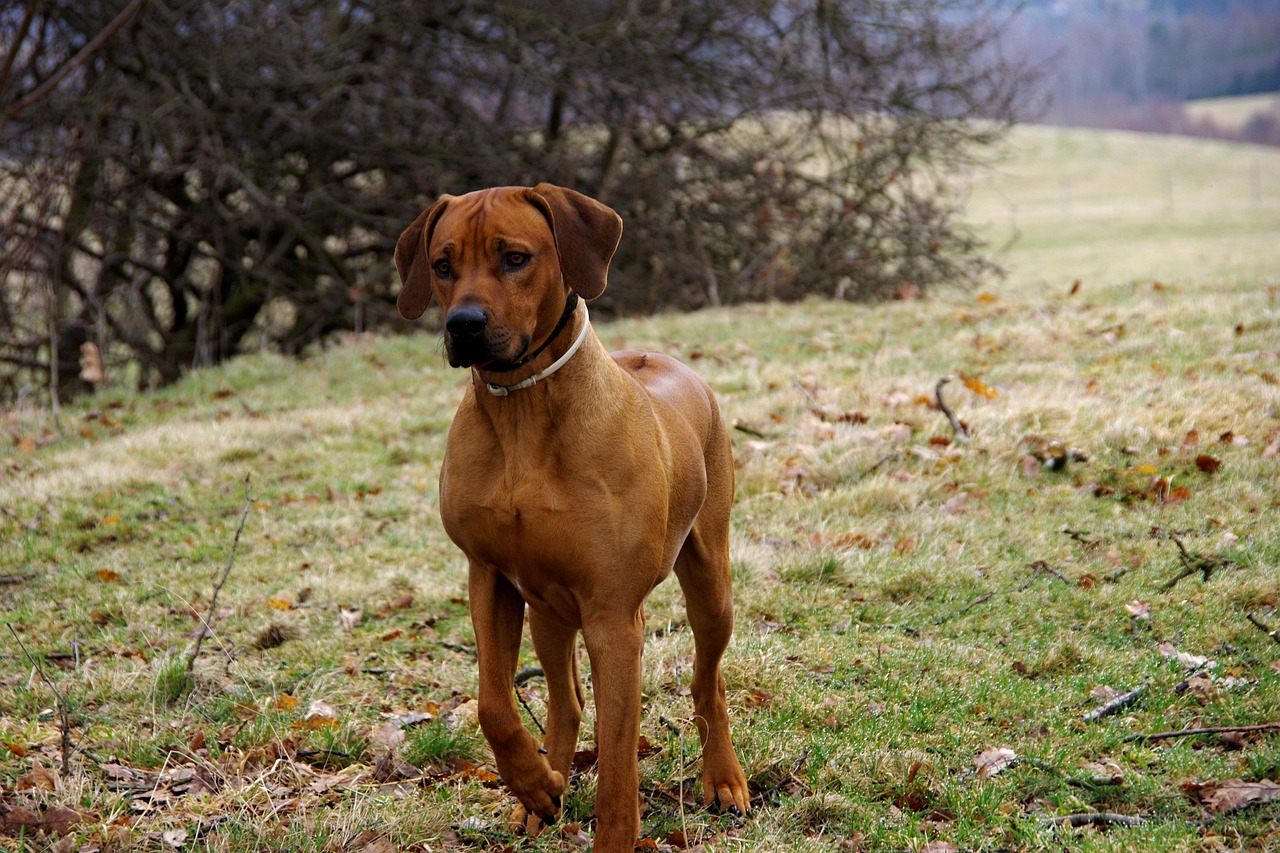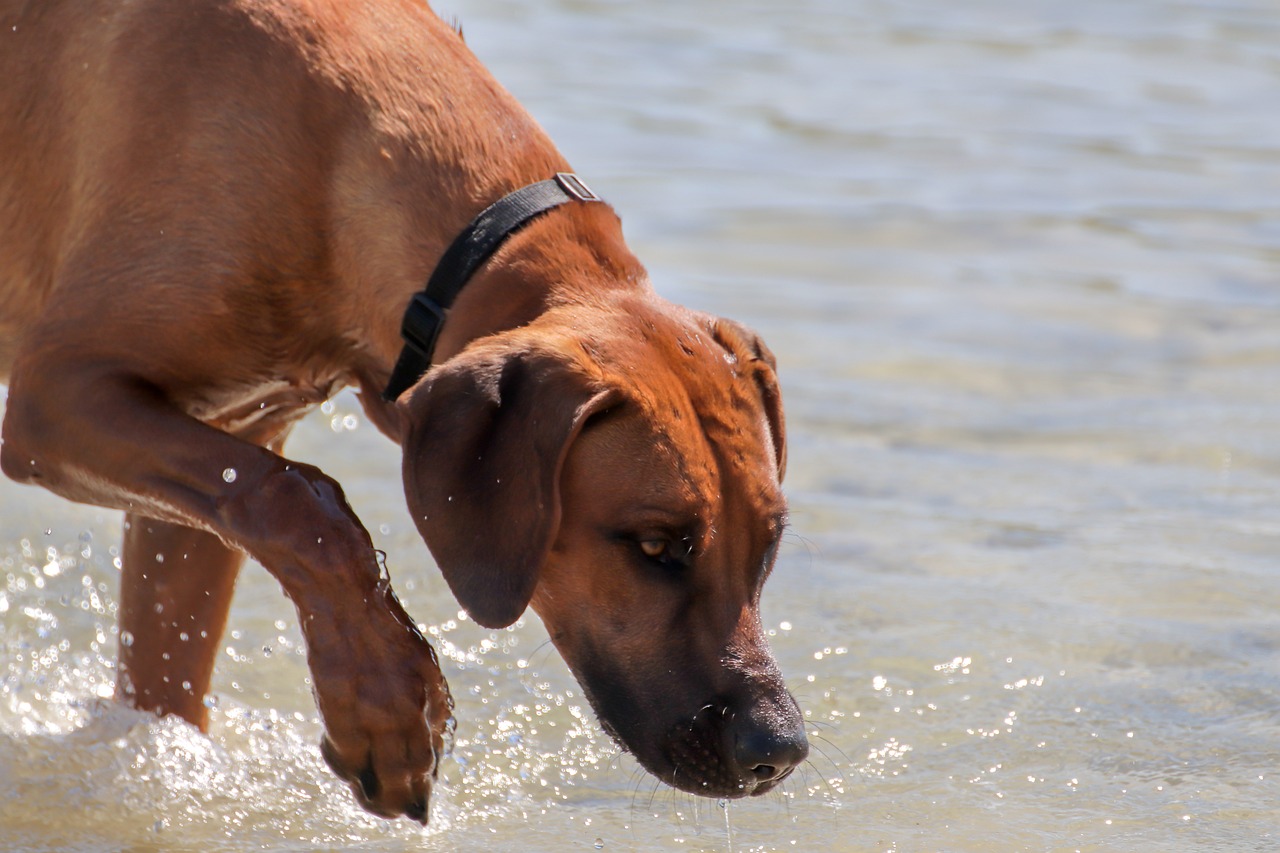Rhodesian Ridgebacks, originally bred in Southern Africa to hunt lions and protect homesteads, are distinguished by the characteristic “ridge” of hair running along their backs. Known for their bravery, intelligence, and independent nature, these dogs are not just formidable hunters but also loyal family protectors. Beyond their physical prowess and historical uses, Rhodesian Ridgebacks exhibit several unusual habits that can be fascinating to their owners. These behaviors are a blend of their hunting lineage, their environment adaptations, and their unique personalities. Understanding these traits can significantly enhance the relationship between Ridgebacks and their owners, providing insights into managing and nurturing this powerful breed. This article explores seven peculiar habits of Rhodesian Ridgebacks, shedding light on the distinctive traits that make them both challenging and rewarding companions.

1. Aloofness with Strangers
Rhodesian Ridgebacks often exhibit a marked aloofness towards strangers, a trait stemming from their role as guard dogs in isolated areas. They are not quick to trust and can be reserved, assessing newcomers carefully before deciding if they pose a threat. This behavior requires socialization from a young age to ensure it doesn’t evolve into aggression. For families, this trait can be reassuring as the Ridgeback will always be vigilant, making them excellent watchdogs who guard their homes and loved ones with discernment.
2. “Ridgeback Roar”
One of the most distinct vocalizations in the canine world is the “Ridgeback Roar.” Unlike typical barking, this sound is deep and resonant, similar to a roar, and is used to intimidate threats or express displeasure. This unusual habit reflects their fearless nature and readiness to stand their ground, traits that were indispensable in facing large predators like lions. Owners might find this vocalization startling, but it is a natural expression of their protective instinct.
3. Prey Drive Expression in Play
Rhodesian Ridgebacks have a high prey drive, an inheritance from their hunting days. This drive is often expressed in their play, which can be more intense and assertive than other breeds. They may engage in chasing games that mimic hunting behaviors, such as stalking or pouncing. For owners, providing structured play sessions and training can help manage this habit, ensuring it remains controlled and doesn’t escalate into aggression.
4. Sunbathing
Rhodesian Ridgebacks have a particular fondness for sunbathing, often seeking out sunny spots to lie in for hours. This habit likely comes from their origins in hot African climates where basking in the sun helped regulate their body temperature and keep their joints healthy. Owners should provide safe, sunny spots for their Ridgebacks to indulge in this behavior, especially in colder climates, to help them maintain comfort and health.
5. Selective Hearing
Rhodesian Ridgebacks are known for their independent nature, which can sometimes translate into what appears to be selective hearing. They may choose to respond to commands when it suits them, especially if they are distracted or not sufficiently motivated. This trait requires consistent, patient training to ensure they understand that compliance is not optional. Their independent streak can be a challenge but also a testament to their intelligence and self-sufficiency.
6. Digging
Despite their size, Rhodesian Ridgebacks have a propensity to dig, a habit that can be traced back to their need to create cool resting places in the hot African environment or perhaps to uncover hidden prey. This digging can become problematic in gardens or landscaped areas, so providing a designated digging spot or engaging them in other activities can help mitigate unwanted excavation.
7. Nighttime Vigilance
Lastly, Rhodesian Ridgebacks often exhibit nighttime vigilance, staying alert even during late hours. This habit comes from their historical role in protecting livestock and homesteads from nocturnal predators. They might patrol the house or remain alert to sounds, which can be both a reassuring and disruptive trait. Providing a routine and reassuring them of their safety can help ensure they rest well without unnecessary stress.

Rhodesian Ridgebacks are as complex as they are majestic, with habits that echo their historical roles as hunters and protectors. These behaviors, from their distinctive roar to their preference for sunbathing, highlight the unique adaptations and traits that make them formidable yet loving companions. Understanding and embracing these traits can help owners provide a supportive environment where Rhodesian Ridgebacks can thrive, offering loyalty, protection, and companionship in return.
 Toledo, United States.
Toledo, United States.